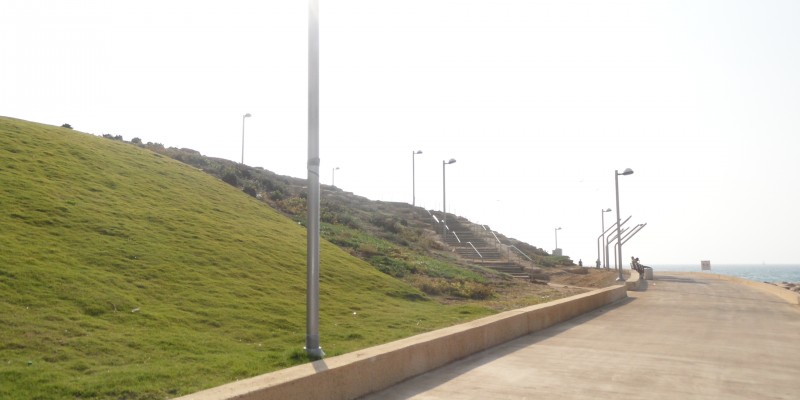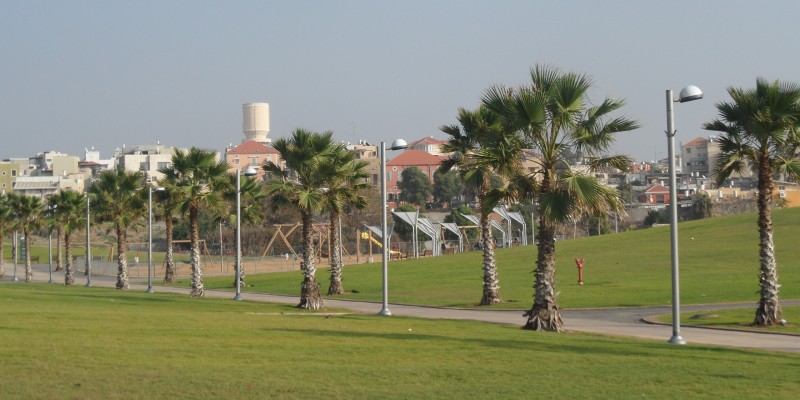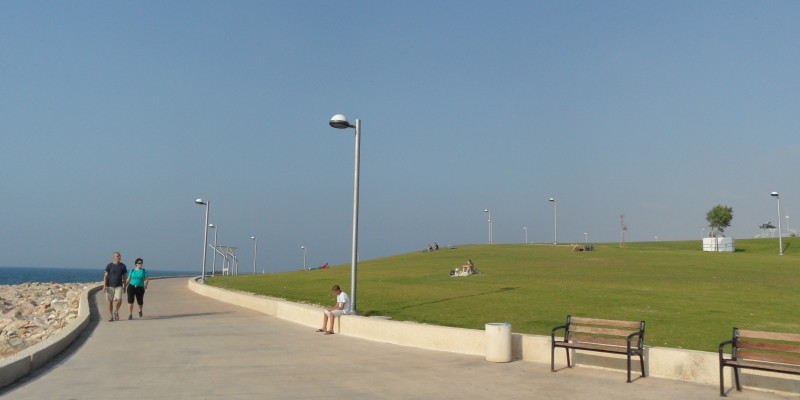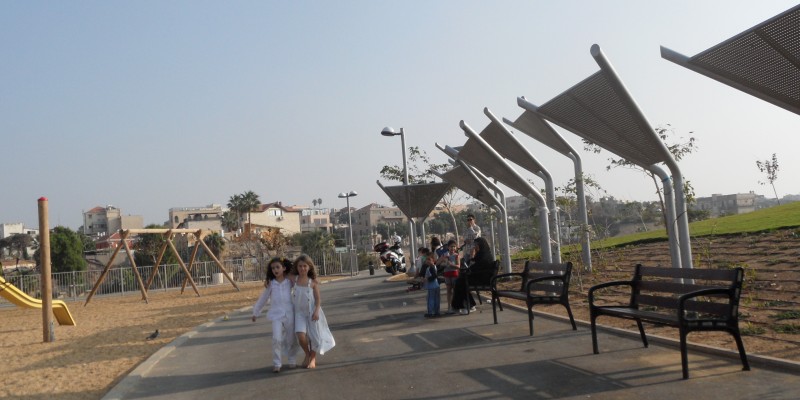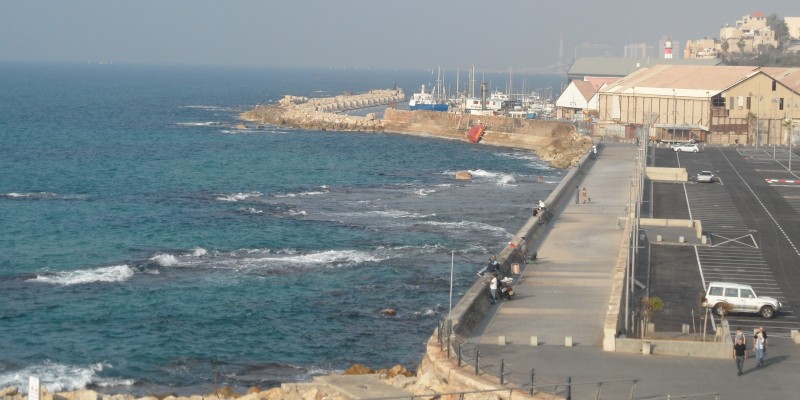Over the last three decades, a significant warming trend, more extensive than the global rate, has been identified in the majority of the Mediterranean Basin (MB) during the summer months. Coastal regions, such as those in the MB, are characterized by high temperatures and high relative humidity (RH) in the summer season, resulting in Heat Stress (HS) conditions. In addition to the general warming, highly populated coastal cities create over-heated urban islands. Moreover, elevated temperatures are expected to increase the air stability over the MB, intensifying the marine inversion and its ability to trap the lower level moisture and air pollutants. This air stability further aggravates the HS conditions, leading to higher energy consumption (for cooling) and further enhancement of the urban heat island effect and air pollution. Parallel to these climatic changes, cities worldwide have been subject to unprecedented growth and severe social and economic pressures, which have an uneven impact on the urban environment. Responses to growth and deprivation through “regeneration” plans must include the creation of sustainable communities, which are a key means of delivering healthy and attractive communities and improving quality of life.
To date, urban design practices have mainly followed regulative, social and aesthetic criteria, overlooking climate considerations and thus often failing to consider human comfort. Underlying this project is the question of whether climatic considerations should be a requisite component of the urban planning process. This project explores the importance of human comfort as it has been addressed in the disciplines of urban design and climatology. It also analyzes the complexity of the term “sustainability” and introduces the possibilities and constraints of integrating climate considerations into design practices. Using the case of Mediterranean cities in Israel, the project offers a specific set of urban design codes and an urban language that addresses present and future climate challenges.

